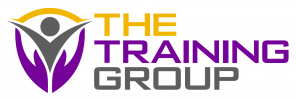Unit 1: Understanding roles, responsibilities and relationships in education and training
Learners will be taught how to analyse the application of pedagogical principles, use assessments, plan lessons and prepare for the classroom environment.
Understanding and using inclusive teaching and learning approaches in education and training
Planning to meet the needs of learners in education and training (Copy 1)
Assessing learners in education and training (Copy 1)
Using resources for education and training (Copy 1)
Unit 2: Teaching, Learning & Assessment In Education & Training (Copy 2) (Copy 1)
Learners will be taught about their responsibilities as educators, educational legislation, meeting the needs of the learners and how to teach in a student-centred manner.
Unit 3: Theories, Principles & Models In Education & Training (Copy 2) (Copy 1)
Learners will be taught ways in which theories, principles and models of learning can be applied to teaching, learning and assessment.
Unit 4: Wider Professional Practice & Development In Education & Training (Copy 2) (Copy 1)
Learners will be taught about the concepts of professionalism and dual professionalism in education and training and how they can apply this within the classroom.
Unit 15: Inclusive Practice (Copy 2) (Copy 1)
Learners will be taught how to review the impact of personal, social and cultural factors on learning and teaching.
Unit 17: Preparing for the mentoring role (Copy 2) (Copy 1)
Learners will be taught how to analyse the skills and qualities required for a the mentoring role teachers play in education.
Unit 25: Developing, using and organising resources in a specialist area (Copy 2) (Copy 1)
Learners will be taught how to analyse how theories, principles and models of inclusive curriculum design can be used to inform resource development in own specialist area.
No questions yet
Be the first to ask your question! You’ll be able to add details in the next step.
Ask a new question
Add an answer

Impact of values, behaviours, attitudes, and emotional awareness
The impact of values, behaviors, attitudes, and emotional awareness plays a significant role in the mentoring relationship. Developing self-awareness enables mentors to recognize their own values, beliefs, and attitudes, which may influence their interactions with mentees. By being conscious of these factors, mentors can effectively manage their own biases and prejudices, ensuring that they provide unbiased guidance and support to their mentees.
Self-regulation is another crucial aspect of mentoring. Mentors should be able to manage their emotions, ensuring that their reactions are appropriate and constructive, even in challenging situations. This ability not only helps maintain a positive mentoring relationship but also sets a good example for mentees on how to manage their emotions effectively.
Biases and prejudices can potentially hinder the effectiveness of the mentoring relationship. Mentors need to be aware of any unconscious biases they may hold and actively work towards mitigating their influence on the guidance they provide. This is particularly important when working with mentees from diverse backgrounds or with different experiences, as biases can lead to misunderstandings, and miscommunication, and even harm the mentee’s progress.
Emotional awareness is a critical component of a successful mentoring relationship. Mentors should be able to recognize and respond to the emotional needs of their mentees, showing empathy and understanding. By doing so, they can create a safe and supportive environment where mentees feel comfortable discussing their challenges, aspirations, and emotions.
In summary, the impact of values, behaviors, attitudes, and emotional awareness on the mentoring relationship is significant. By developing self-awareness, self-regulation, and managing biases and prejudices, mentors can foster a positive and effective mentoring relationship that supports the personal and professional growth of their mentees.
Additional References:
Akers, M & Porter, G. (2016). What is Emotional Intelligence (EQ)? Psych Central. Retrieved on March 20, 2018, from https://psychcentral.com/lib/what-is-emotional-intelligence-eq/
Chun, J., Litzky, B., Sosik, L., Bechtold, D. & Godshalk, V. (2010). Emotional Intelligence and Trust in Formal Mentoring Programs. Accessed on January 15, 2018, on file:///C:/Users/SUPPOR~1/AppData/Local/Temp/421.full.pdf
Cooper, R. (1997). Applying emotional intelligence in the workplace .Accessed on January 15, 2018, on http://go.galegroup.com/ps/anonymous?id=GALE%7CA20251750&sid=googleScholar&v=2.1&it=r&linkaccess=fulltext&issn=10559760&p=AONE&sw=w&authCount=1&isAnonymousEntry=true
Cremona, K. (2010). Coaching and emotions: An exploration of how coaches engage and think about emotion. Coaching: An International Journal of Theory, Research, and Practice, 3, 46-59.
Opengart, R. and Bierema, L. (2015). Emotionally Intelligent Mentoring Reconceptualizing Effective Mentoring Relationships. Human Resource Development Review, 14(3), pp.234-258.



